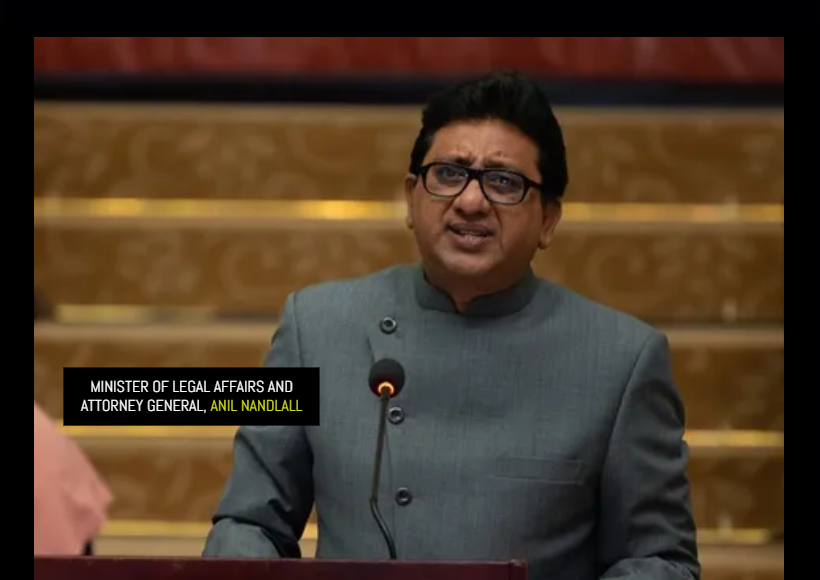Attorney General and Minister of Legal Affairs, Mohabir Anil Nandlall, SC, has described Venezuela’s presentations to the International Court of Justice (ICJ) as ‘biased and prejudicial’.
Minister Nandlall made the comments shortly after the court on Wednesday concluded oral hearings on the request for the indication of provisional measures submitted by Guyana in the case concerning the Arbitral Award of 3 October 1899 (Guyana vs Venezuela).

Presented before the ICJ at the Peace Palace in The Hague, Vice President of Venezuela, Delcy Rodrigues portrayed Guyana as an aggressor state that is seeking ‘judicial colonialism’ by asking the court to intervene in the country’s internal matter – the national referendum scheduled for December 3, 2023.
“It’s a dialogue that is completely biased, completely prejudicial…with nationalistic and patriotic fervour directed obviously to the population of Venezuela and that has been their narrative from the inception,” the minister expressed.
The Attorney General said Guyana is not attempting to halt the national referendum. Rather, it is seeking provisional measures from the court that will prevent Guyana’s Essequibo region from being annexed by any means.
Minister Nandlall reiterated that Venezuela’s internal referendum cannot seek to dictate action that will violate another country’s sovereignty and territorial rights, which is why the world court’s intervention is being sought.
On September 21, 2023, Venezuela’s National Assembly passed a resolution calling for a referendum regarding Venezuela’s unsubstantiated claim to two-thirds of Guyana’s territory. Subsequently, the National Electoral Council of the Bolivarian Republic of Venezuela issued five questions to be asked in the national referendum.
Among the questions, all of which are intended to further Venezuela’s unlawful and unfounded claims, questions three and five are the most detrimental.
Question three seeks to ratify Venezuela’s “historical position of not recognising the jurisdiction of the International Court of Justice” as the final and binding means of settlement while question five brazenly seeks the approval of the Venezuelan people for the creation of a new Venezuelan State in Guyana’s Essequibo Region, which would be incorporated into the national territory of Venezuela, and the granting of Venezuelan citizenship and identification cards to the population.
“We are asking to rephrase the questions. Ask questions that will not undermine and subvert not only the legal process but will interfere with our territorial rights and our territorial sovereignty. We are asking also that…At least the court must say something about their ability to enforce those referendum questions. Because the enforcement of the referendum questions will involve an annexure, invasion, and occupation of territory that is lawfully Guyana’s,” the minister further explained.
Guyana presented its single round of oral arguments to the Court on November 14 and Venezuela presented its case on Wednesday. The president of the court has indicated that the court will provide its decision to the parties as soon as possible.
On November 6, Guyana’s National Assembly unanimously passed a motion reaffirming the nation’s sovereignty and territorial integrity, and condemning Venezuela’s referendum.
The passage of this motion followed extensive meetings between His Excellency, Dr Mohamed Irfaan Ali and the Opposition Leader, Aubrey Norton, as the government and the opposition present a united front on an issue of national importance.
In 2018, Guyana applied the ICJ, seeking that the court confirm the legal validity and binding effect of the 1899 Arbitral Award regarding the boundary between the then British Guiana and the United States of Venezuela.
The application also sought to affirm that the 1899 award was a “full, perfect, and final settlement” of all questions related to determining the boundary lines between the colony of British Guiana and Venezuela. (Extracted from the Department of Public Information)













